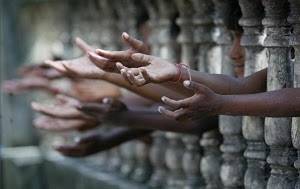Dr Chukwuemeka B.Eze, Director of the Democratic Resilience in Africa Programme at the Open Society Foundations, warns that African nations must rethink leadership and governance models to place citizens at the centre if democracy is to survive and thrive on the continent.
Speaking at a recent high-level dialogue held in Pretoria South Africa, Eze highlighted the growing pressures on democracy worldwide, noting how new forms of illiberalism and geopolitical shifts challenge long-standing democratic norms. For countries in Africa, he stressed that these challenges are compounded by unique contexts requiring tailored approaches.
A key message from Eze was the need for governance that delivers real benefits to the people. He explained that many policies and political systems in Africa have failed to be truly people-centred or responsive to citizens’ needs. However, he also pointed to hope in the youth movements emerging across the continent.
In countries such as Kenya and Senegal, young people are mobilising beyond ethnic or ideological lines, focusing instead on issues like economic justice and accountability. This new wave of activism demands that leaders hold fair elections, uphold basic freedoms, respect the rule of law, and provide tangible dividends from democracy.
Eze believes this signals a renegotiation of the social contract between governments and citizens, with the people asserting what they deserve from the state rather than passively accepting what is offered. He warned that African leaders who fail to engage with these demands risk being on the wrong side of history.
The dialogue also discussed notable examples of democratic resilience in Africa, including Botswana’s peaceful transition of power. Eze highlighted this as proof that change is possible when governments respect the will of their citizens and remain accountable.
He stressed that governance must not remain the preserve of a small political elite controlling resources, as this leaves many young people with uncertain futures. Instead, inclusive leadership that embraces justice and accountability is essential for building sustainable democracies.
Finally, the conversation underscored the importance of ongoing dialogue between states and citizens to rebuild trust and bridge divides. Attempts to suppress dissent through force will only deepen discontent and instability.
--ChannelAfrica--













